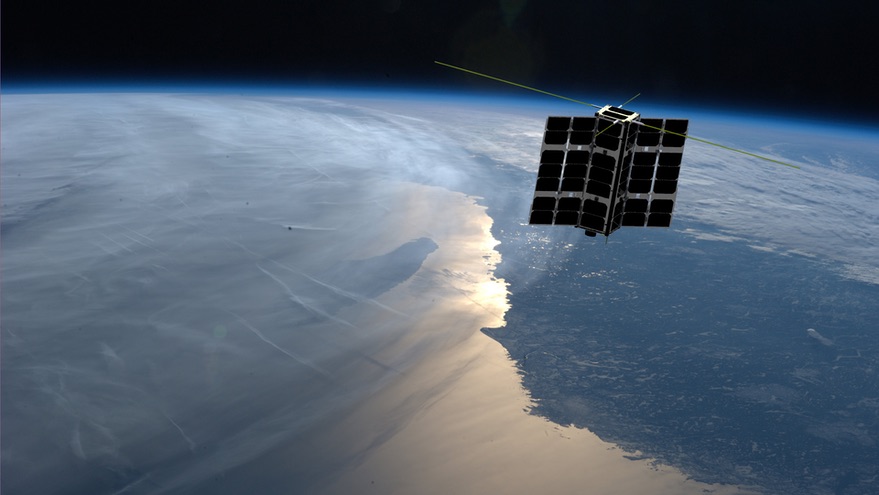WASHINGTON — Members of the House Science Committee asked the new administrator of the National Oceanic and Atmospheric Administration to make more use of commercial satellite data and take action on space traffic management.
At a Sept. 23 hearing of the committee’s environment subcommittee, Rep. Frank Lucas (R-Okla.), ranking member of the full committee, questioned NOAA Administrator Richard Spinrad about the agency’s use of commercially acquired data from satellites to aid in weather forecasting.
Lucas said he was “thrilled” that NOAA made another purchase of commercial weather data in August, acquiring 3,000 radio occultation profiles a day for six months from Spire. “But I’m concerned we could be leaving valuable data on the table,” he said, because companies that did not have satellites in orbit when the program started can’t compete until a new round of proposals is requested in about a year.
Spinrad, confirmed to the post in June, responded that while he supported commercial weather data in general, there was a “cautionary note” about its application for weather forecasting. “We need to make sure that it meets the standards that are applied, and also that it’s sustainable,” he said. “In the worst-case scenario, we end up developing products and services that are critically dependent on the provision of commercial data, and then for a variety of economic or business reasons those data are not available.”
He said it will take “a little bit of time” for NOAA to assess “the data quality, the data accuracy and the sustained availability of those data” for weather forecasting, efforts he argued were consistent with the legislation that established the commercial weather data program at NOAA.
The adoption of commercial weather data by NOAA has been a slow process, but agency officials said they expect such data to be increasingly used in weather forecasting. “It took a lot of back-and-forth dialogue over a couple of years, but we now have an operational commercial data purchase program to provide the radio occultation data to NOAA, and we expect that to be an essential part of our information content for the future,” said Stephen Volz, acting assistant secretary for environmental observation and prediction at NOAA, during a panel at the Satellite 2021 conference Sept. 10.
That data is, for now, limited to GPS and other satellite navigation signal radio occultations, which provide profiles of the atmosphere. Volz said NOAA is continuing to consider other data it can purchase commercially, such as microwave sounding data. However, like Spinrad, he said that NOAA has to keep the availability of data into account.
“We have to balance the availability of new data against the reliability and long-term sustainability of that data source so that our customers are not shocked by upgrades or downgrades in performance based on the availability of a particular data set,” he said.
At the hearing, Lucas raised similar questions about the purchase of commercial space weather data. The Promoting Research and Observations of Space Weather to Improve the Forecasting of Tomorrow (PROSWIFT) Act, enacted in October 2020, directed NOAA to establish a pilot program for purchasing space weather data within 12 months of its enactment. However, he noted NOAA issued a request for information before the bill’s passage but found no companies that meet its mission needs.
“While NOAA may have been proactive, I don’t believe their updated responsibilities for space weather related research forecasting capacity were perhaps fully considered in the RFI,” he said, asking Spinrad to issue an updated RFI or request for proposals.
Spinrad said he would take the issue for the record. “But you have my commitment to look into that and see what the appropriate next step would be.”
Space traffic management concerns
Later in the hearing, Rep. Brian Babin (R-Texas), ranking member of the space subcommittee, asked about the Office of Space Commerce, which is housed within NOAA, and its work on space traffic management. He expressed concern the office was using funding appropriated for fiscal year 2021 to develop a space situational awareness open architecture data repository for other studies instead.
Spinrad said he has “embraced” the issue of space traffic management since taking over NOAA. “We are taking very specific actions,” he argued, including work on the data repository. An interagency demonstration of that data repository is planned for the “next several weeks,” after which NOAA will demonstrate it to Congress.
NOAA is also looking at alternatives for the organization of the office, including merging it with NOAA’s Commercial Remote Sensing Regulatory Affairs office. “It requires careful consideration of the operational responsibilities and regulatory responsibilities,” he said. “We’re looking at alternatives, and we’ll have that analysis of alternatives ready very shortly.”
He also questioned whether the office had all the authorities needed to take on civil space traffic management. “We are looking at that as well.”
Later the same day, NASA’s Aerospace Safety Advisory Panel made another call for Congress to act on space traffic management. Patricia Sanders, chair of the panel, cited SpaceX’s proposal for an additional 30,000 Starlink satellites as evidence of the urgency of the issue.
“It does underscore our persistent concern with the lack of a formally designated and resourced lead agency for space traffic management,” she said. “This continues to be a critical safety concern, a growing safety concern, that remains unaddressed by the Congress, and it’s well overdue to be acted on.”
